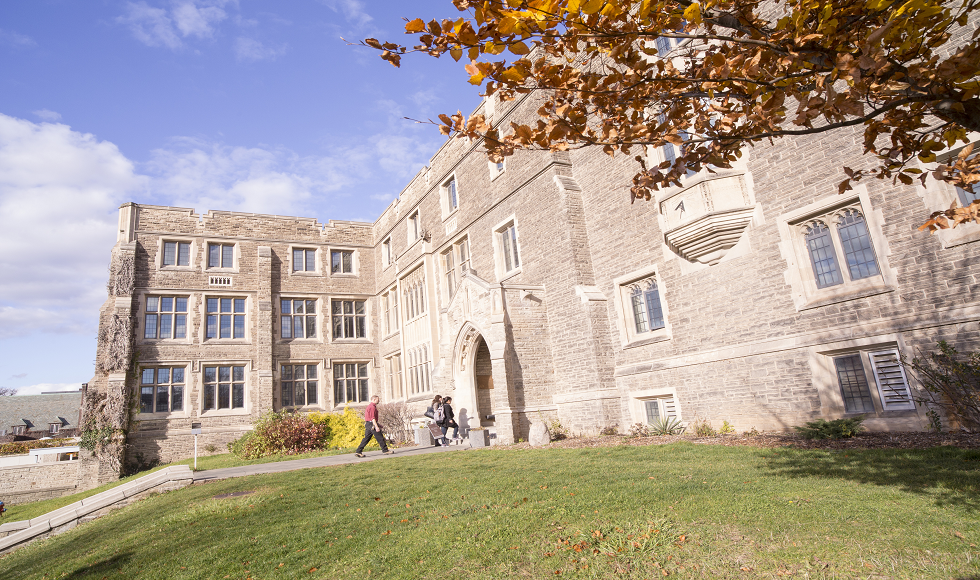McMaster-based institutes receive nearly $10M from Canada Foundation for Innovation

BY Lori Dillon
January 9, 2017
Two McMaster-based institutes have received a combined investment of nearly $10M from the Canada Foundation for Innovation (CFI).
The awards, funded through CFI’s Major Science Initiative (MSI) Fund, were announced today by Canada’s Minister of Science, the Honourable Kirsty Duncan. MSI funding ensures Canada’s large, complex research facilities that serve communities of researchers have the support they need to continue to operate at the cutting edge.
The Canadian Centre for Electron Microscopy (CCEM) – which houses some of the world’s most advanced suite of tools and capabilities – received $3.75M guaranteeing the facility and its users will build on the last decade of scientific excellence and remain competitive on the international stage.

CCEM’s Scientific Director and Canada Research Chair in Electron Microscopy of Nanoscale Materials, Gianluigi Botton, says the investment speaks to the Centre’s international reputation, its leading edge science, and its role in training highly qualified personnel.
“Our facilities are used by researchers in the academic, government and private sectors to advance their knowledge in a variety of areas – from structural materials to biomedical and health sciences to energy and environment to solid-state physics and electronics,” says Botton. “This funding ensures they’ll further their work, train the next generation of leaders, and position Canada as a global competitor.”
Each year, CCEM hosts some 350 users, including those who are keen to develop stronger steels for safer pipelines; lighter weight alloys for more efficient cars; new biomaterials for bone implants and diagnostic tools; cancer diagnostics and therapies; new materials for fuel cells in clean transport; and low cost water purification.

The Canadian Research Data Centre Network (CRDCN) – headquartered at McMaster since 2010 – was awarded $5.9M to allow its 1,500 researchers from the 27 university-based facilities across the country to advance their understanding of key research questions and inform critical areas of public policy.
CRDCN’s Executive Director, Martin Taylor, says the funding helps the Network in two ways. “This investment both augments and complements core funding previously awarded by the Canadian Institutes of Health Research (CIHR) and the Social Sciences and Humanities Research Council (SSHRC); but more than that, it signals that the CRDCN is one of Canada’s premier platforms to support advanced social sciences and health research in Canada.”
Hosted by McMaster University, the CRDCN is a partnership between a consortium of Canadian universities and Statistics Canada, co-funded by CIHR and SSHRC as well as the CFI. It facilitates access to Statistics Canada’s microdata, including census, social and health surveys, as well as an increasing number of administrative data files.
McMaster’s Vice-President of Research, Rob Baker, says CFI’s investment – in both basic and social science – epitomizes the breadth of McMaster’s expertise and the promise of its researchers to drive Canada’s innovation and economy.
“This funding is secured for projects that will strengthen Canada’s national and unique research facilities. It’s specifically designed to bolster world-class research and, the fact that McMaster has received funding for two very distinct projects, is a testament to our strengths across the disciplines and our central role in training the country’s future leaders.”
 Equipment at the Canadian Centre for Electron Microscopy allows researchers to see things on an atomic level – including atoms in a superconductor (a material that does not exhibit any resistance to the passage of electric current below a given temperature), seen here.
Equipment at the Canadian Centre for Electron Microscopy allows researchers to see things on an atomic level – including atoms in a superconductor (a material that does not exhibit any resistance to the passage of electric current below a given temperature), seen here.


